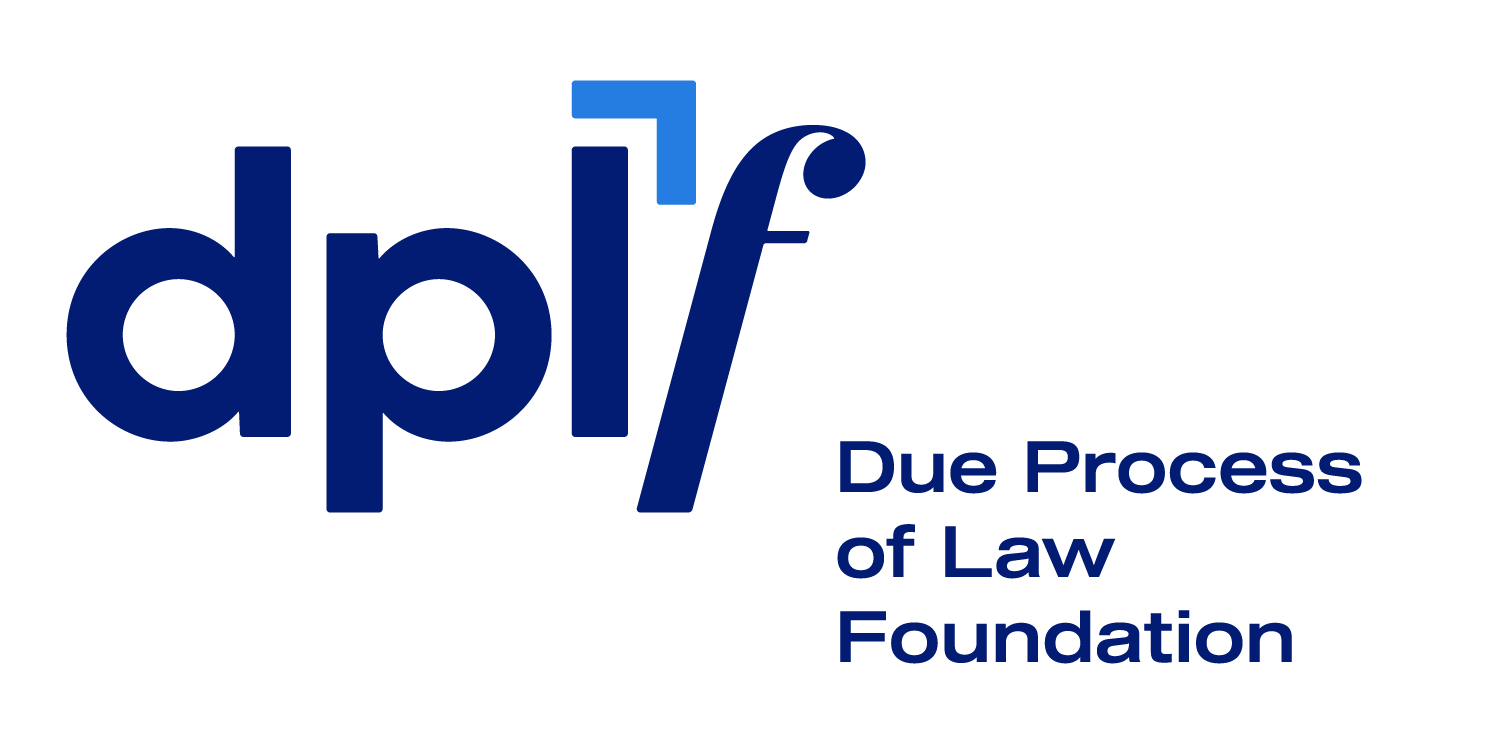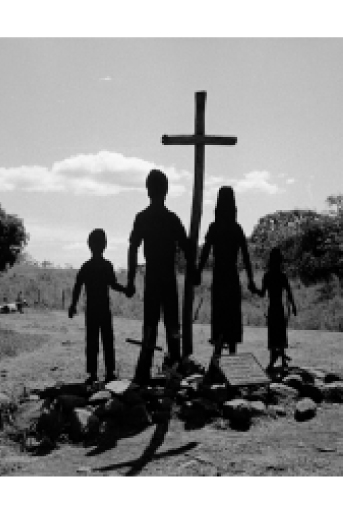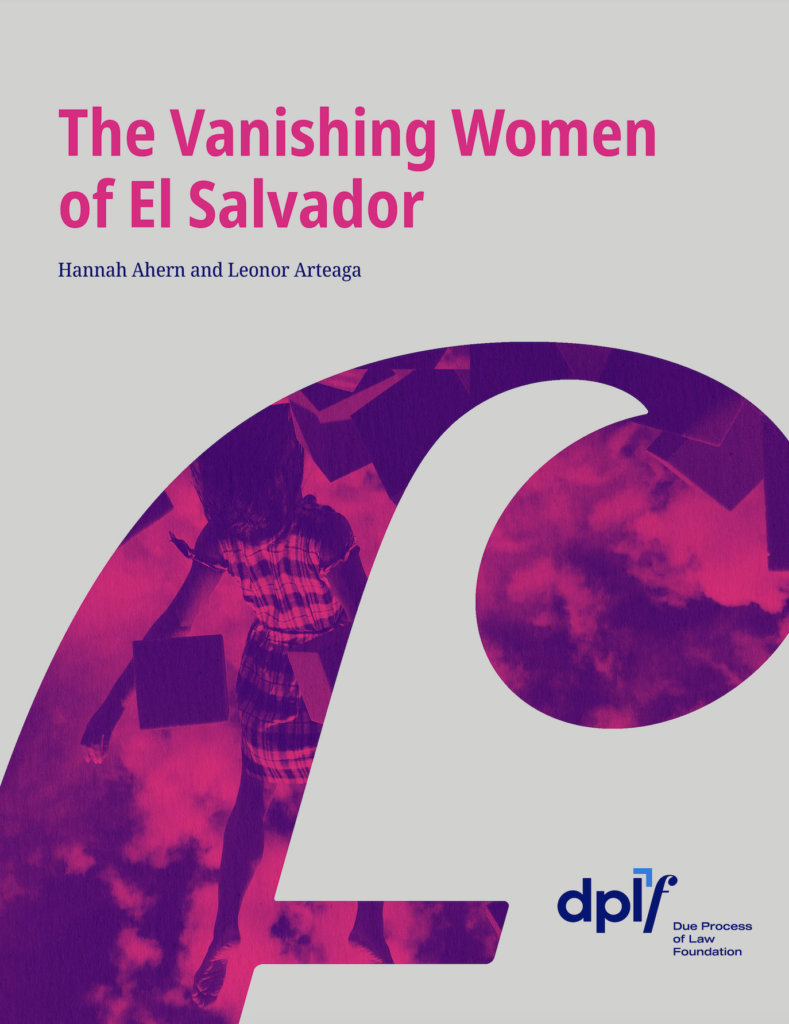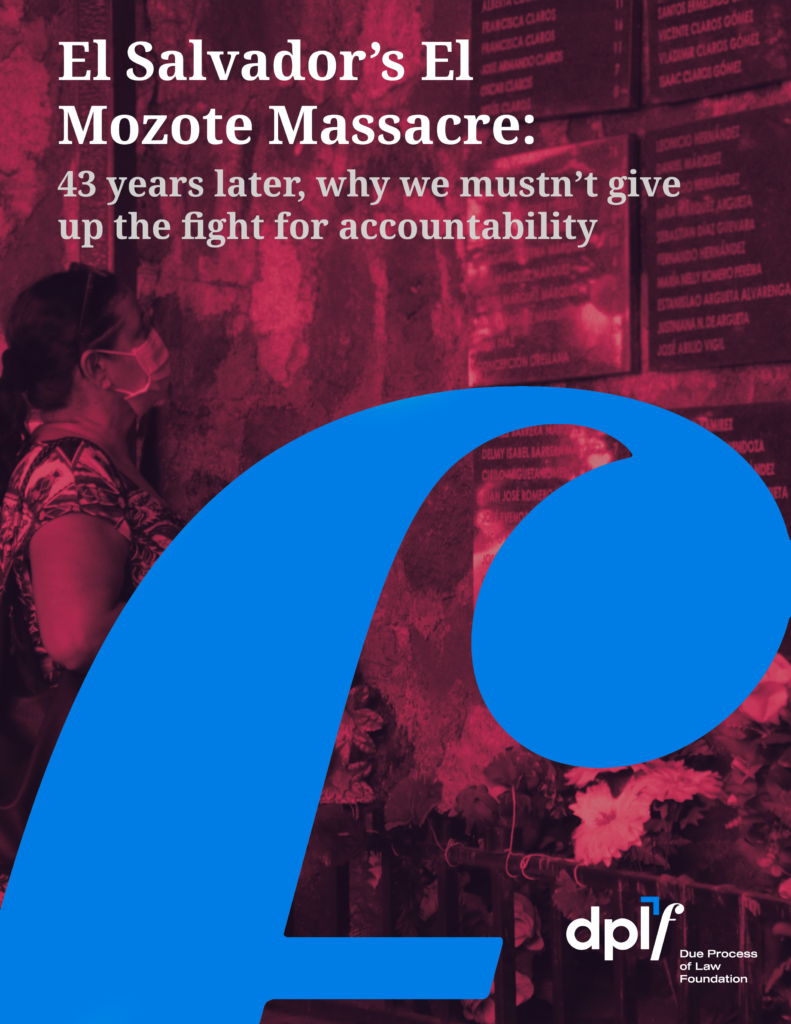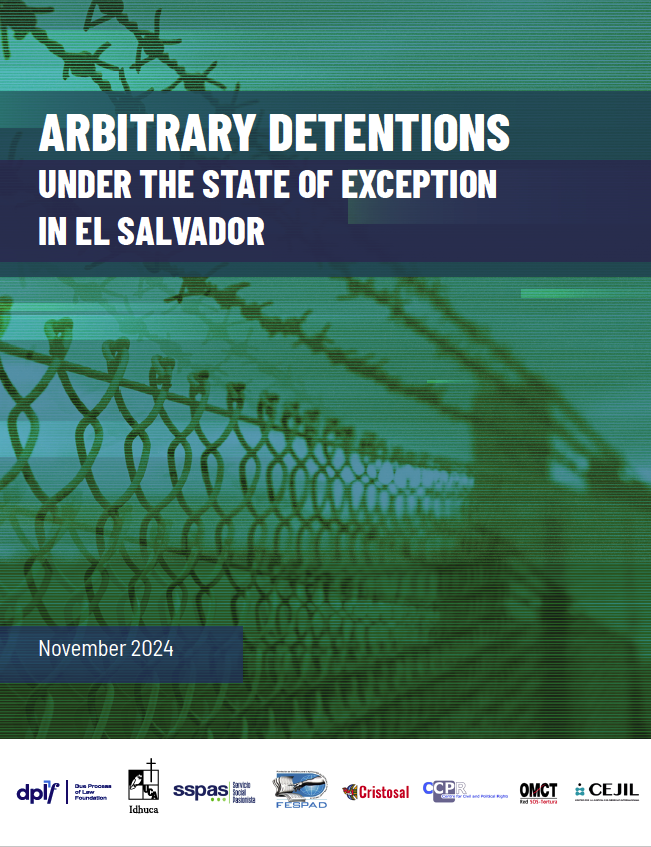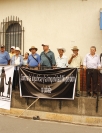 [October 16, 2018] This month marks two years since a judge in El Salvador re-opened the criminal investigation into the El Mozote massacre, one of the worst atrocities in modern Latin American history. Over the course of several days in December 1981, the US-trained Atlacatl battalion of the Salvadoran army murdered, tortured, and committed other acts of extreme violence against civilians in the village of El Mozote and in the surrounding rural area. The government did not accept responsibility for the massacre until 2011, in the context of a case before the Inter-American Court of Human Rights (IACtHR), litigated by CEJIL and the Tutela Legal del Arzobispado (which was later closed by Catholic authorities). The official record now shows that during the El Mozote massacre, 986 civilians were executed indiscriminately – with over half of the dead estimated to be children. Rape and sexual violence were also committed systematically against women in and around El Mozote.
[October 16, 2018] This month marks two years since a judge in El Salvador re-opened the criminal investigation into the El Mozote massacre, one of the worst atrocities in modern Latin American history. Over the course of several days in December 1981, the US-trained Atlacatl battalion of the Salvadoran army murdered, tortured, and committed other acts of extreme violence against civilians in the village of El Mozote and in the surrounding rural area. The government did not accept responsibility for the massacre until 2011, in the context of a case before the Inter-American Court of Human Rights (IACtHR), litigated by CEJIL and the Tutela Legal del Arzobispado (which was later closed by Catholic authorities). The official record now shows that during the El Mozote massacre, 986 civilians were executed indiscriminately – with over half of the dead estimated to be children. Rape and sexual violence were also committed systematically against women in and around El Mozote.
The El Mozote legal proceeding currently underway is the first and thus far the most advanced in El Salvador for grave crimes related to that country’s civil war (1980-1992). The victims are represented by the human rights organizations Fundación Cristosal and Tutela Legal Maria Julia Hernandez. As DPLF’s Senior Program Officer, Leonor Arteaga, explained in a post commemorating the 35th anniversary of the massacre, victims and their legal representatives have spent decades fighting for justice. They found some measure of recourse by means of the IACtHR judgment issued in 2012, as well as via local court proceedings protecting victims’ rights and ordering continued exhumations since 2014. Victims first filed a lawsuit in the case in 1990, but an amnesty law, put in place shortly after the end of the civil war, presented a seemingly insurmountable barrier to holding the perpetrators criminally liable. However, the Amnesty Law was declared unconstitutional in July 2016, laying the groundwork for criminal court Judge Jorge Guzmán Urquilla to accept a petition by the victims to re-open the case two and a half months later. Then, in March 2017, Judge Guzmán Urquilla brought charges against 18 high-ranking military officers, including three retired Generals: Juan Rafael Bustillo Toledo, Rafael Flores Lima, and former Defense Minister José Guillermo García. One of the defendants, former Deputy Defense Minister Francisco Adolfo Castillo, died earlier this month. This underscores the urgent need for the trial to progress efficiently, given that the decades-long delay in the case processing means that most of the defendants are now elderly.
Given the gravity of the crimes and the context in which they occurred, the accused should be charged under both national criminal law (using the Penal Code in effect at the time, for the crimes of murder and aggravated rape) and international law (war crimes or crimes against humanity). DPLF argued for this “double charge” (doble calificación) in an amicus brief presented to the court during the pretrial phase (a ruling on this matter is expected soon). The rank of the officials is also an important aspect of the trial. By focusing on the responsibility of high and mid-ranking officers, rather than lower-level foot soldiers, Judge Guzmán Urquilla is allowing the legal process to explore the military strategy at the time of the massacre, and possibly helping to uncover why so many civilians were targeted – if such atrocities can ever truly be understood. (A US judge who ordered the deportation of one of the defendants, former Defense Minister Guillermo García Merino, found that the massacre was part of a “deliberate military policy.”)
To fully investigate these issues, in 2016 Judge Guzmán Urquilla ordered the armed forces to turn over records related to the massacre, but they reported back that most records could not be located. However, the head of the Armed Forces General Archives and another officer employed there shed light on this issue during their February 2018 testimony. They noted that information of historical value is not destroyed as a matter of policy, and that records about the El Mozote massacre could exist in files not previously searched. Crucially, they indicated that special operations and campaigns – such as the actions in El Mozote – are not carried out without the knowledge and authorization of the highest levels of the military.
The case’s progress has received significant pushback from sectors of Salvadoran society affiliated with the military, who have argued that the El Mozote case would be best left in the past, to be forgiven and forgotten. Even the Attorney General’s office was reluctant to prosecute the case, which was only advancing after so many decades due to the efforts of the victims exercising their rights under Salvadoran law as “private prosecutors” (acusación particular). Attorney General Douglas Melendez initially argued to the court that the El Mozote case was res judicata (cosa juzgada) – already adjudicated, case closed – and should be dismissed. However, Judge Guzmán Urquilla did not accept this argument and allowed the case to proceed. Since then, Melendez’s office has changed its posture, building on investigatory work carried out under the previous Attorney General and culminating in its active participation throughout the present year in the proceeding against the military officers for their alleged roles in the massacre.
Testimony provided by 43 survivors and witnesses over the past 15 months in Judge Guzmán Urquilla’s courtroom has been harrowing. Survivors have spoken of the brutal murders of their loved ones, including elderly persons, pregnant women, and babies. They have shared how they survived by fleeing and hiding in caves and hills as the army advanced, only to be attacked when the cries of children alerted soldiers to their whereabouts. It is clear that many carry emotional scars for having witnessed such barbarity, and suffering the loss of, in some cases, their entire family. The level of detail the witnesses have shared shows how formative those tragic events have been in their lives. As one victim described how the massacre has impacted every facet of his life: “I feel like it was yesterday.”
However, during cross-examination, the defense lawyers have tried to discredit victims by implying that they were not actually eyewitnesses, but rather are simply repeating accounts shared by others. They have also highlighted when, for example, victims with compelling testimony are not able to read or write. Their strategies also serve to bring into focus the power imbalance, then and now: many of the victims and witnesses are farmers and peasants without a formal education, while the defendants’ legal team includes elite military officials.
The defense has also argued that what happened at El Mozote was not a massacre but an armed confrontation between the military and guerilla fighters, and that exhumations have uncovered not the site of massacres but makeshift cemeteries used by rebels at the time. However, these theories did not hold up under scrutiny in court. Testifying as expert witnesses, members of the Argentine Forensic Anthropology Team (Equipo Argentino de Antropología Forense, EAAF), which conducted exhumations around El Mozote and published a report with their findings, decisively established that the victims uncovered at mass grave sites were all killed around the same point in time. They also testified that the victims’ remains had not been moved or tampered with, and that many had been shot multiple times while on the ground, i.e. discounting counter-narratives of an armed confrontation between two groups. This expert scientific testimony corroborated the eyewitness testimony of El Mozote survivors earlier in the proceeding – of seeing groups of people gunned down; of discovering piles of bodies in a church, too many to count. The EAAF expert testimony also brought out the fact that ballistics evidence demonstrated that many of the bullets that killed the victims were manufactured in Missouri – which goes to the material and financial support that the US provided for the Salvadoran military despite its record of human rights abuses.
International experts and advocates have raised concerns about the slow progress of the case, which has been ongoing for over two years since it was reopened, and is expected to continue well into 2019. It is thus likely that, before the trial court reaches a verdict, the IACtHR will issue a resolution regarding El Salvador’s compliance with its 2012 judgment (referred to above), based on its visit to El Mozote in August 2018. During that visit, the IACtHR heard from victims and government officials regarding the state’s compliance with the obligation to investigate, prosecute, and punish grave human rights violations related to the massacre, among other reparations ordered by the IACtHR. IACtHR Judge Zaffaroni and many other experts have noted that the state has not assigned sufficient resources – for example, Judge Guzmán Urquilla has limited assistance and is charged with overseeing not only the complex El Mozote criminal proceeding, but also other types of civil and administrative matters. It is hoped that the IACtHR’s forthcoming resolution will address these shortcomings and provide concrete recommendations towards the progress of the case.
It remains to be seen whether the historic trial will result in an historic verdict against the military officers charged. Despite the unprecedented nature of the proceeding and the gravity of the crimes – the scale and horror of the massacre have been described as “akin to genocide” – there has been little presence in court by the media and civil society, partially because it is taking place outside of the capital. However, the proceeding warrants attention, in El Salvador and abroad, because the victims deserve to be heard. They have waited 37 years and are finally speaking truth to power despite all odds.
